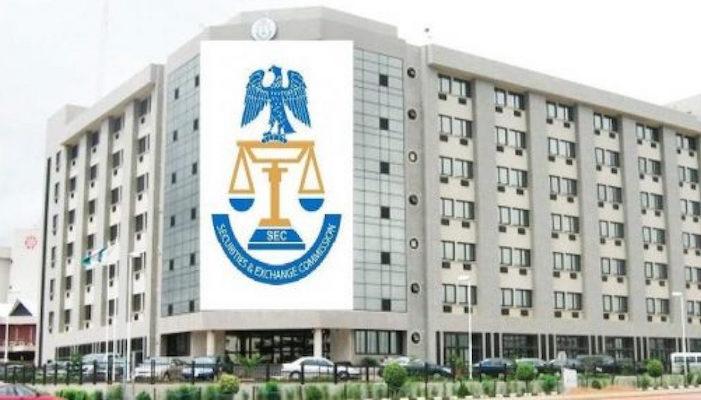The United States and the new World Order
The United States and the new World Order Published on Business Day Newspaper – October 5, 2025 After the second world war, the world was devastated. Europe was in ruins. Germany, the aggressor, was disintegrated. The Soviet Union was in disrepair. Japan was in rubbles. But the United States was unscathed. The US was the only country whose production capacity and economic power was not adversely affected by the war. However, the Americans and their leaders learnt a lesson that you cannot live in peace when your neigbhours or allies are in crisis or war. It is a matter of time before the crisis will affect you either by refugees from your neighbours besieging your territory or the aggressor encroaching into your country. It can also affect you by reduced trades and economic relations with your war-ridden neighbours. The World War 11 ravaged the world with destruction and inflicted global poverty, hunger and despair on it. The world gasped for peace, reconstruction, rehabilitation, redirection, purpose, dignity and restoration. There was a leadership vacuum. This was the period of the global outcry of, too little, too late. The great Franklin D. Roosevelt, the 32nd President of America and later his successor, Harry Truman, the 33rd President of America led America to rescue the World. First was the founding of the World Bank and IMF commonly referred to as the Bretton Woods Institutions in 1944 to help rebuild Europe and Japan. Later, American discovered that what Europe required to be rebuilt was not loans but grants hence the Marshall Plan. Gradually the World Bank shifted its focus to restore financial stability and reduce poverty in the world. At the Monetary and Financial conference in Bretton, a new economic order was set up with an agreement that there will be a fixed relationship between currencies. It was decided that the American dollar (the greenback) would be the world’s reserve currency since US was undisputably the world’s most economic power holding two-thirds of the world’s gold reserve. This was followed by the founding of the United Nations in 1945 for global peace and harmony. The Food and Agriculture Organization, an arm of United Nations was founded in 1945 for global food security. The Marshall Plan was implemented in 1947 to restore the economies of Western Europe. It cost the US the sum of $13.1 Billion to implement. It remains undeniably the most benevolent gesture, sacrifice and grant that restored 13 countries of western Europe to economic prosperity and political prominence. The World Health Organization was founded in 1948 to expand universal health coverage. NATO, an alliance of countries of Europe and North America for co-operation in defence and security was founded in 1949.NATO remains the most successful defence alliance in the last 76years. Other global institutions founded by the leadership and most times with the initiatives of US included International Court of Justice, UNESCO, UNICEF, WTO, G7 group of nations, G20 group of nations. USAID is the large heart and giving/philanthropy arm of America. America also initiated the global consensus on global human rights, peace, international law, justice and norms. These institutions helped to maintain relative global peace, stability, reduce inequality and poverty as well as engender economic prosperity in the world. Indeed, there has not been any war of global dimension since 1945.The propensity of territorial acquisition and encroachment was eliminated. Territorial aggression vanished until the Ukraine-Russia war which started in 2022.Yes, there has been wars like Israeli -Arab war, Vietnam war, Israeli-Palestinian war, Iraqi war, Libyan war, Syrian war, Congo DRC, Sudanese War but none has been of global dimension or territorial expansion like the World 11. America organized and held the world together around a series of noble ideas and global multilateral institutions that catered for the needs of the world. When the cold war which started in 1947 ended with the disintegration of the Soviet Union in 1991, America became the sole global superpower. With her triumph in the cold war, America’s brand of capitalism and democracy became the thrust of global economic and political system. Liberalization, free market economy, privatisation, globalization and competition became the recommended anchors of economic policies. The former Communist world emulated and adopted the capitalism principles in their economic management. By 1978, Deng Xiaoping led China to open their economy to the world. They established socialist market economy, developed capital market and promoted stock exchanges. They privatized most of the small and medium sized public enterprises as well as lifted price control. China promoted private investment and accepted foreign direct investment. This was the beginning of China’s industrial revolution and it has become the world’s manufacturing hub today. On its part, Russia after the collapse of the Soviet Union in 1991, under the leadership of President Boris Yetsin opened the Russian economy to the world through a series of post -Soviet reform policies which included price liberalization, currency stabilization, tax reforms, energy sector reforms and economic diversification. Other Asian countries like Japan, India, Singapore, Hong Kong, Taiwan, South Korea, Malaysia, Turkey adopted the free market economy. In fact, these countries became the economic miracles of the 20th Century through the adoption of free market economy. The Washington Consensus became the template of economic development reform framework for the developing nations. The American Dollar (the greenback) became the currency of the world. The world became America’s market. Currency drives trade, trade drives wealth and economic prosperity. American and its Western allies prospered beyond their forecast. As at 1945, the average per capita income in the US was $12,100; by 2024, it was $82,769. It was at the height of this level of economic prosperity in 1999 that President Clinton in his state of the Union address, declared that “the promise of our future is limitless”. America influenced the world in diverse ways. It became the policeman of the world with the highest military and technological and economic might. However, America also incurred the wrath of many of her admirers by the use of its might




